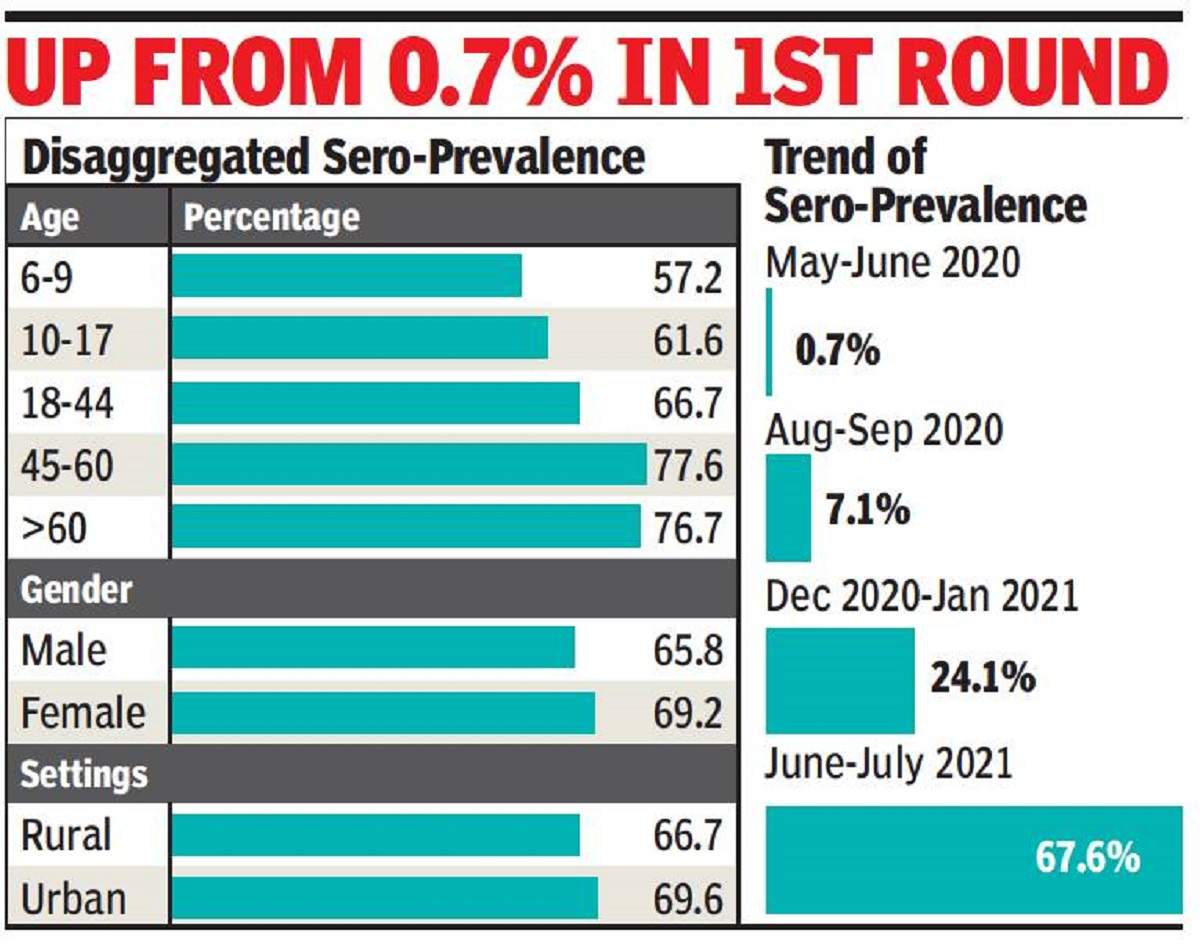ForumIAS announcing GS Foundation Program for UPSC CSE 2025-26 from 19 April. Click Here for more information.
ForumIAS Answer Writing Focus Group (AWFG) for Mains 2024 commencing from 24th June 2024. The Entrance Test for the program will be held on 28th April 2024 at 9 AM. To know more about the program visit: https://forumias.com/blog/awfg2024
Contents
About the news:
The fourth nationwide serological survey was conducted by the Indian Council of Medical Research (ICMR) in June-July. Its findings are significant because this is for the first time children aged 6-17 years were included in the national serosurvey.
What is the ICMR serosurvey?
The ICMR has conducted the fourth round of the national blood serum survey which tests for antibodies, known as a serosurvey, for Covid-19. The aim of the survey was to estimate the sero-prevalence of SARS-C0V-2 antibodies. Few important points to consider,
- The survey only indicates past infections (which triggered an immune response) and is not used to detect active infections.
- The survey was conducted using IgG Enzyme-Linked Immunosorbent Assay(ELISA) test which has been approved by ICMR.
Key findings of the survey:
- The survey shows that one-third of the population does not have antibodies, which suggests that about 40 crore people are still vulnerable to the novel coronavirus. The survey also shows that two-thirds of Indians have been exposed to novel coronavirus.
- The overall seroprevalence in the country was 67.6% in June and July, which is higher than the seroprevalence rate recorded during the three earlier surveys.
- The sero-prevalence is similar in rural and urban areas for all age groups.
- 85% of healthcare workers had antibodies against SARS-CoV-2 and one-tenth of the healthcare workers were unvaccinated.
- The seroprevalence among vaccinated individuals is high as compared to those who are not vaccinated.
- Findings of Survey about Children: Antibody exposure is also similar in children as adults. More than half of the children (6 -17 years) were seropositive. It means they have been exposed to Covid-19 in the past months.
Suggestions of the survey:
- India needs to maintain Covid-appropriate behaviour and impose a curb on community engagements.
- The governments should continue tracking Covid infection in severe acute respiratory infection (SARI) cases in district hospitals and identify clusters and clinical severity, while the Indian SARS-CoV-2 Consortium on Genomics is tracking variants of concern.
- The ICMR also suggested that it would be wise to consider reopening primary schools first, as children can handle viral infection much better (as they have a lower number of ace receptors). But this can be done only after the full vaccination of all the school staff. For instance, Some Scandinavian countries didn’t shut their primary schools in any wave of Covid-19 waves





